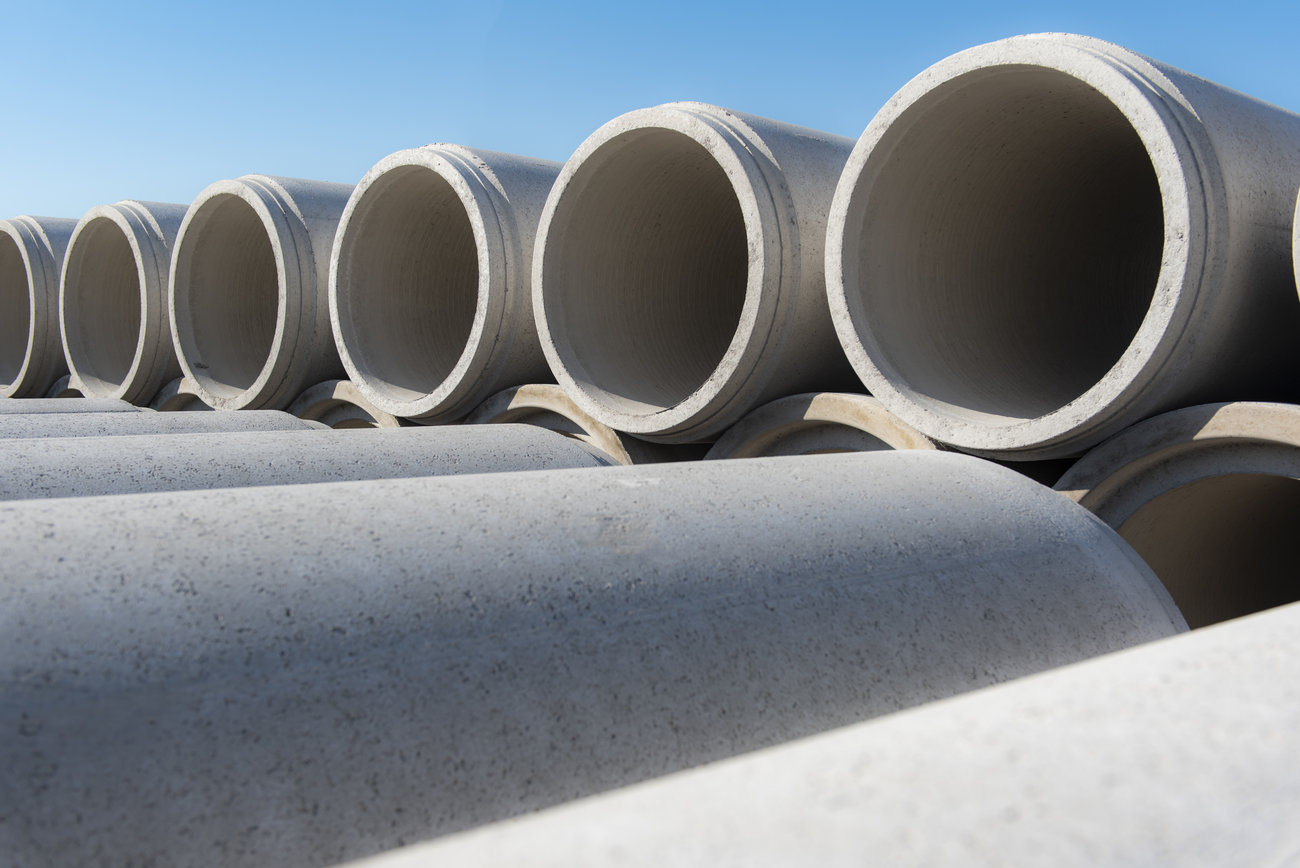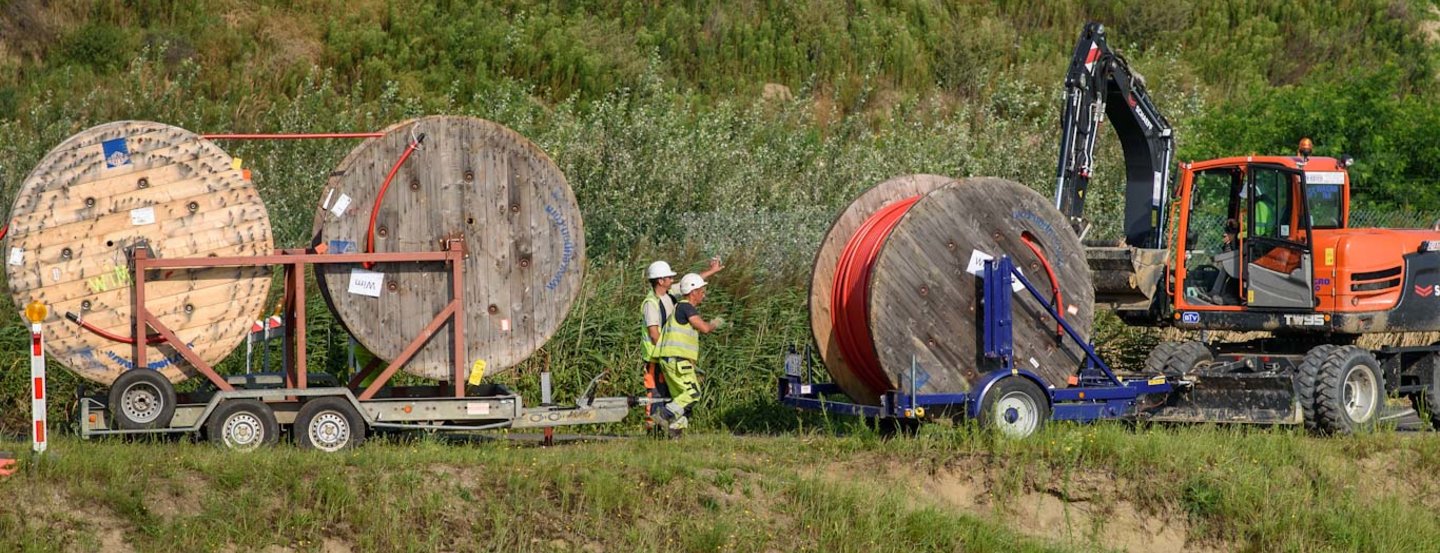
Looking after networks
Fluvius is a network business. We build public networks for electricity, natural gas, public lighting, sewerage, cable TV, telecom and heating. We then give customers access to these public networks. And we provide services all around these utilities day and night. The focus is on reliability and affordability
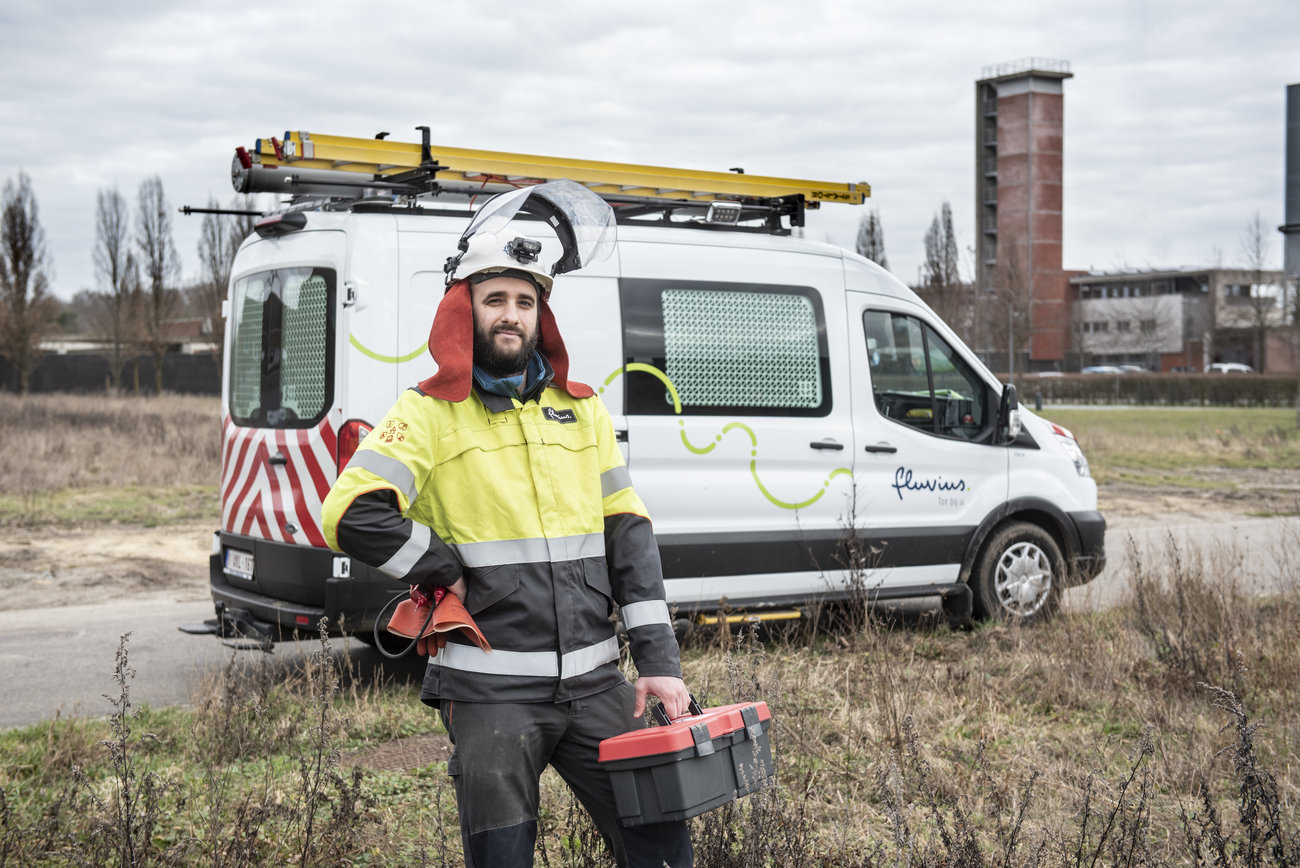
Two goals: reliable and affordable
- Reliable: in 2021, the average Fluvius low-voltage customer was without an electricity supply for just 19 minutes and 51 seconds due to interruptions to the low-voltage and medium-voltage grid. That puts Flanders right at the top of the European table. , And it shows how we contribute to the convenience of our customers.
- Decrease in distribution grid tariffs: these tariffs are calculated according to a new tariff methodology since 2021 and determine how much revenue the Flemish grid operators are entitled to receive. This so-called allowed income will fall by 20% for electricity and 6% for natural gas in 2022 compared to last year. This is partly due to government decisions on the sale of green certificates, the way public service obligations are charged, and the transformation of some federal surcharges into a special excise tax.
For households with average consumption, the distribution grid tariffs in 2022 for electricity will fall by 87 euros (including transmission) and for natural gas by 18 euros (and the trend for companies is similar). As with every year, the actual situation differs from one distribution system operator to the next.
Smart network management
We continue to invest in technically advanced ways of monitoring our grids in real time and controlling them as flexibly as possible. With such a system, we can allow much more green energy on our existing grids, keep our grid reliability high, and avoid some heavy grid investments. All this is crucial for the energy transition.
A good example of this 'smart' network management is the steady phased roll-out of the Distribution Management System (DMS). Since our start as a merged company in 2018, we have been working on gradually converting the various systems into a single, smart network management system for all of Flanders. This process was successfully completed in 2021.
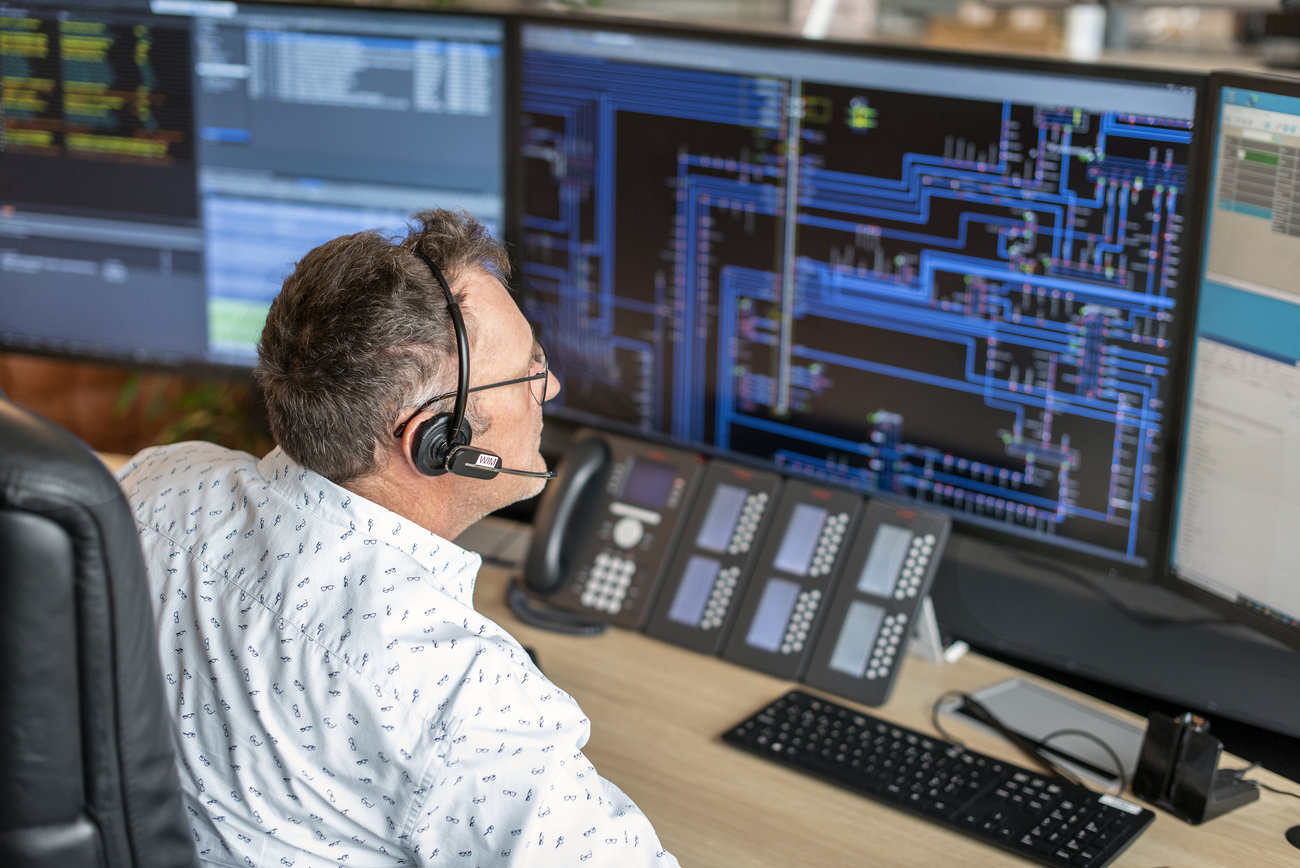
Local generation rising
Although Fluvius does not generate electricity itself, we play a crucial role in the transition to more sustainable, low-carbon energy. We take care of the connection of decentralised (i.e. local) energy sources, which are often renewable. We also distribute the electricity that is generated via our networks.
The locally installed capacity on our grids, which comes mainly from solar panels and wind turbines, is steadily increasing.
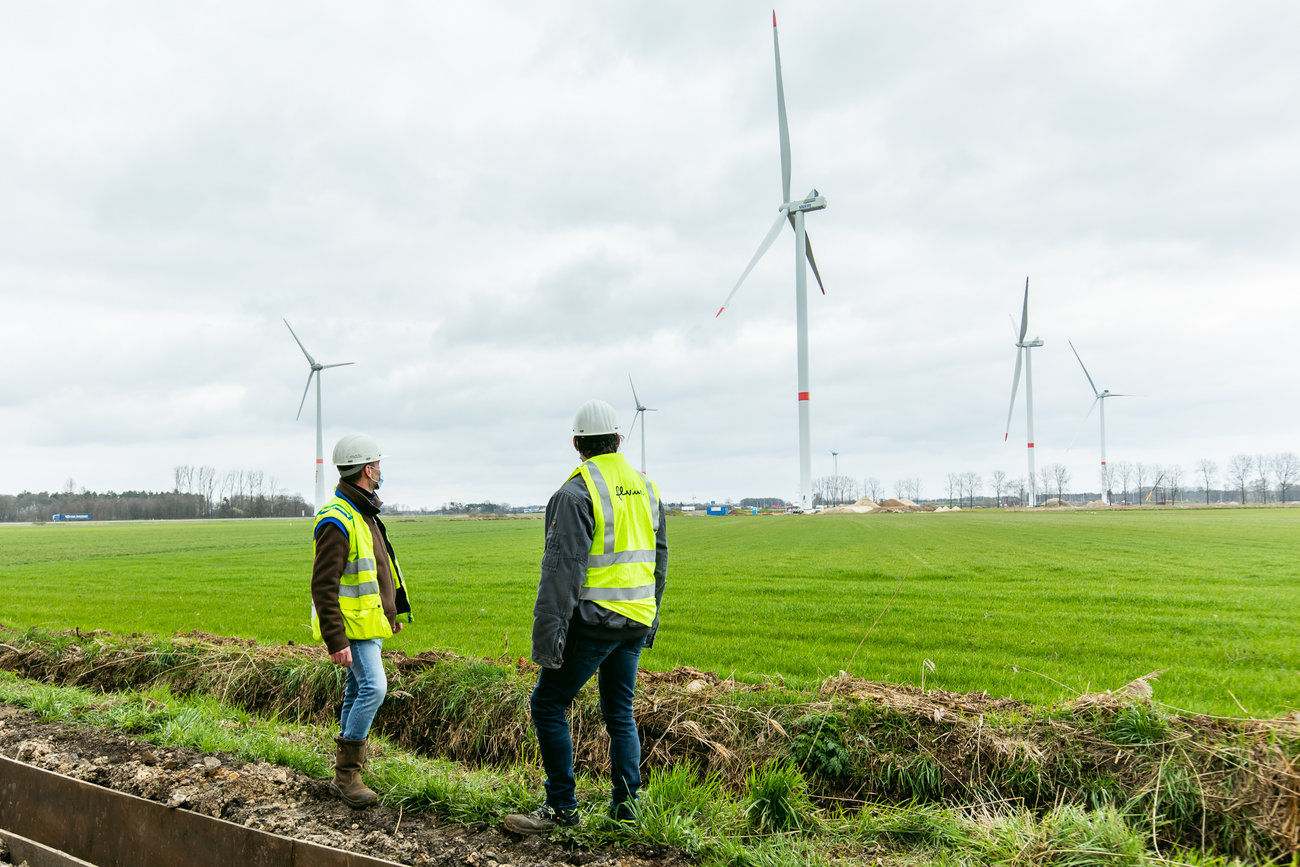
Installed decentralised capacity 2020 - 2021
| Installed decentralised capacity | % 2020 |
kW 2020 |
% 2021 |
kW 2021 |
|---|---|---|---|---|
| Solar panels <= 10 kW | 38,6 |
2 440 977 |
38.4 |
2 668 016 |
| Solar panels > 10 kW | 20,7 |
1 313 190 |
21,7 |
1 504 499 |
| Combined heat & power (CHP) | 14,5 |
918 508 |
14,3 |
991 146 |
| Wind turbines | 18,9 |
1 198 108 |
18,6 |
1 291 327 |
| Bio-CHP | 3,8 |
241 609 |
3,6 |
252 994 |
| Biomass | 1,4 |
91 392 |
1,5 |
105 687 |
| Other | 2,0 |
126 518 |
1,8 |
126 554 |
| Total | 100 |
6 330 301 |
100 |
6 940 222 |
Notable Fluvius network projects in 2021
Vaccination centres prioritised during power outage
Failures in vaccination centres always received priority treatment. Moreover, we arranged additional power or electricity supplies for some centres, such as Park Spoor Oost in Antwerp. We also postponed all non-urgent work around the 95 Flemish vaccination centres to a later date so these could be reached as much as possible.
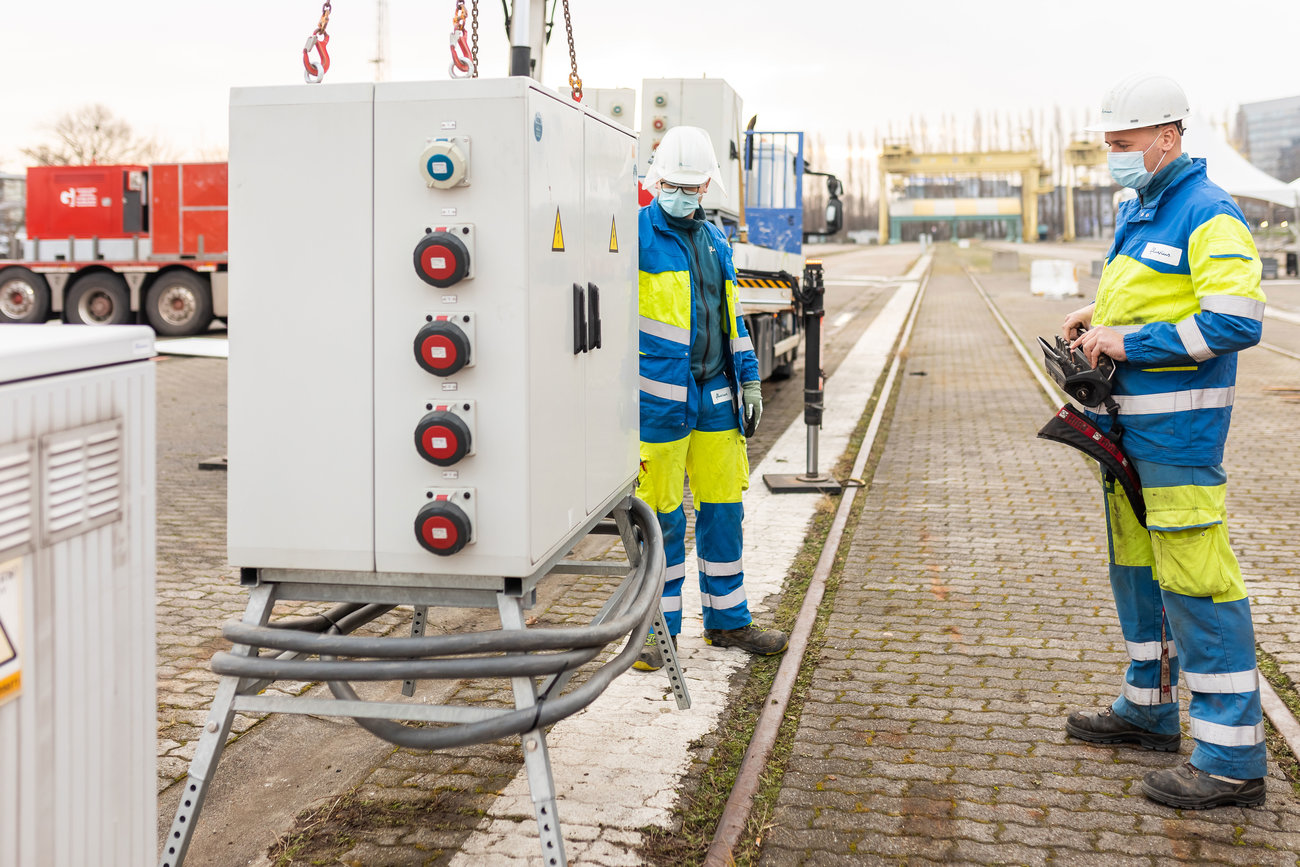
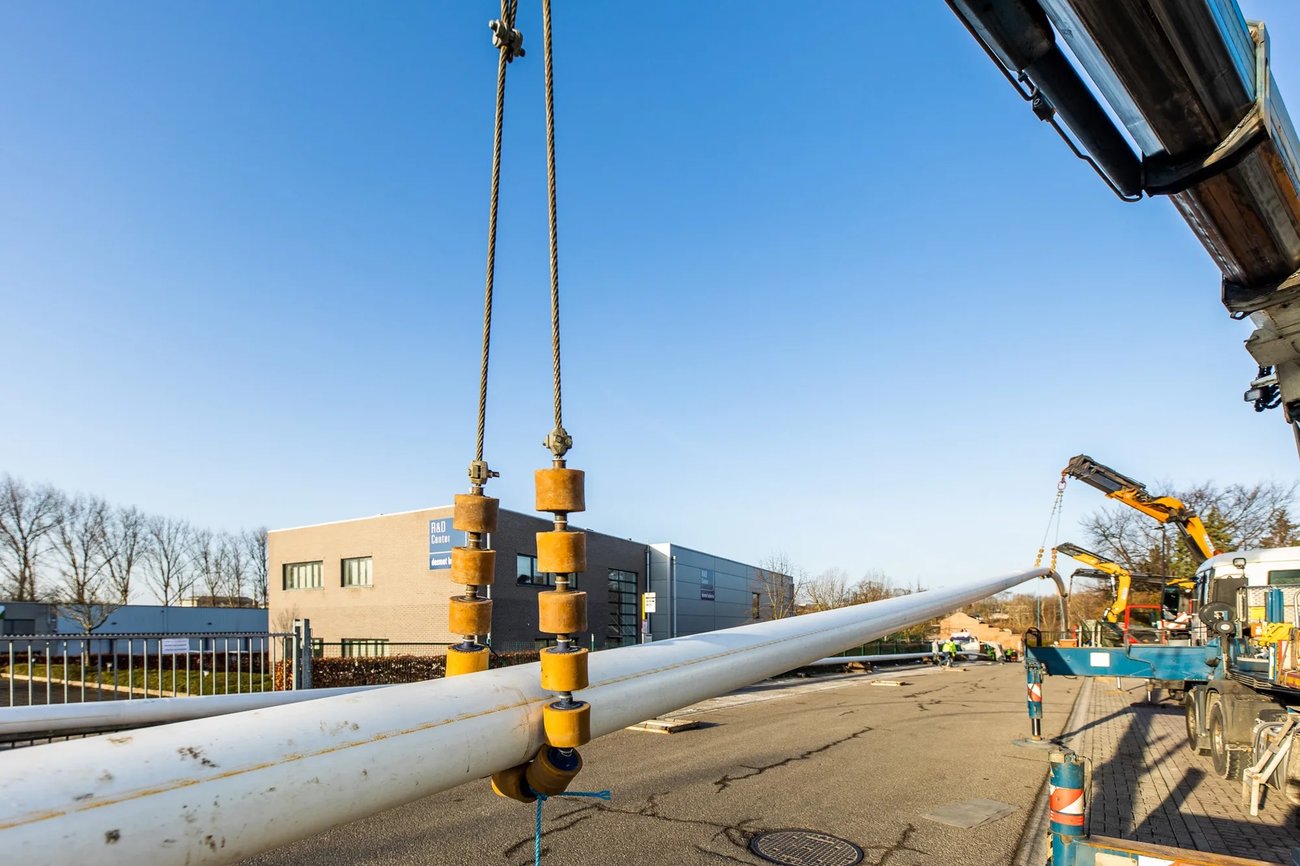
Spectacular dive for utility lines under the Brussels Ring Road
We had to move a lot of utility lines to make room for the foundations of a new bridge over the Brussels Ring Road. With three spectacular underpasses, we brought the gas, electricity, water, and telecom pipelines from one side of the Ring to the other.
Electrical grid upgrades completed in Retie, Dessel, and Mol
Via, among other things, an underpass of the Kempen Canal we laid extra-heavy power cables in Retie, Dessel, and Mol. These have to carry the power from the six new wind turbines next to the E34 in Retie to the transformer station in Mol.
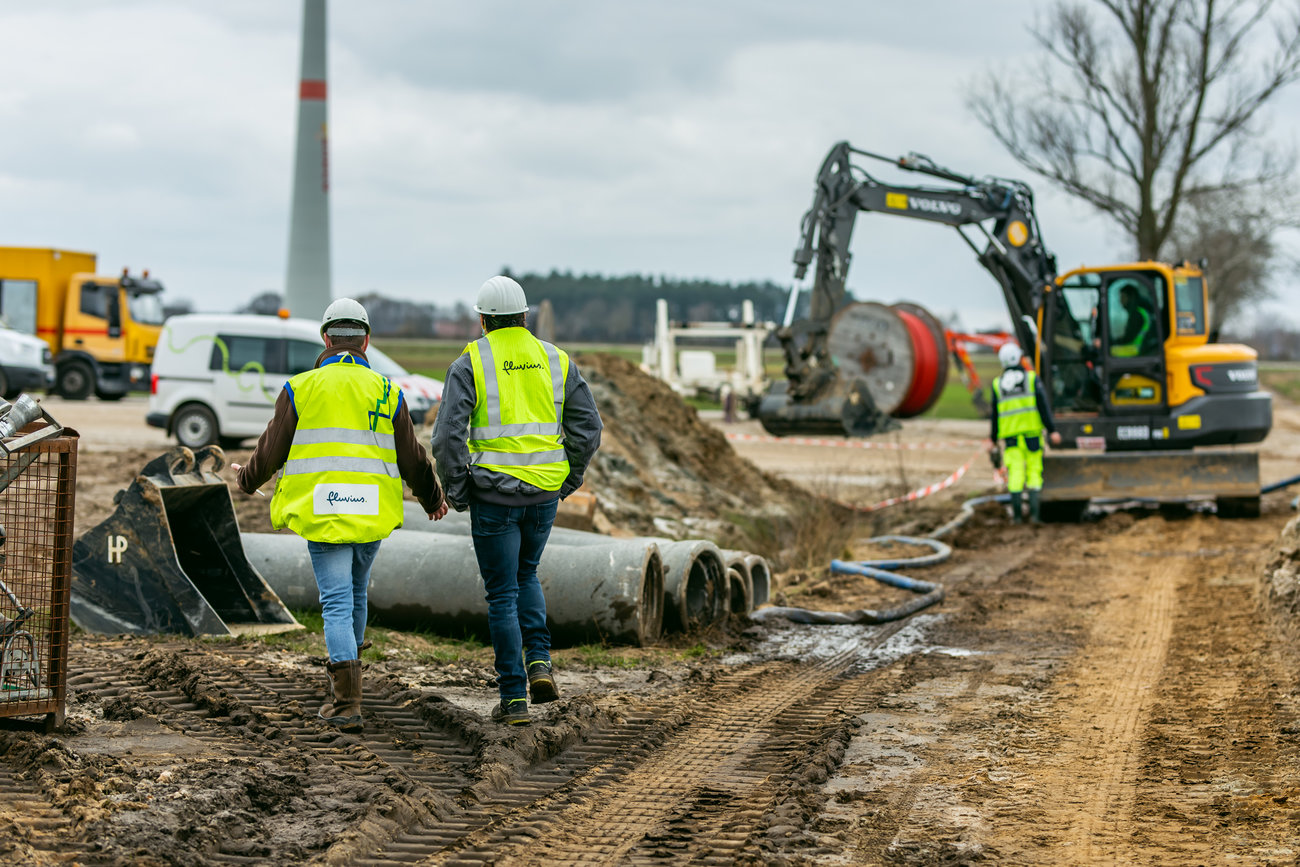
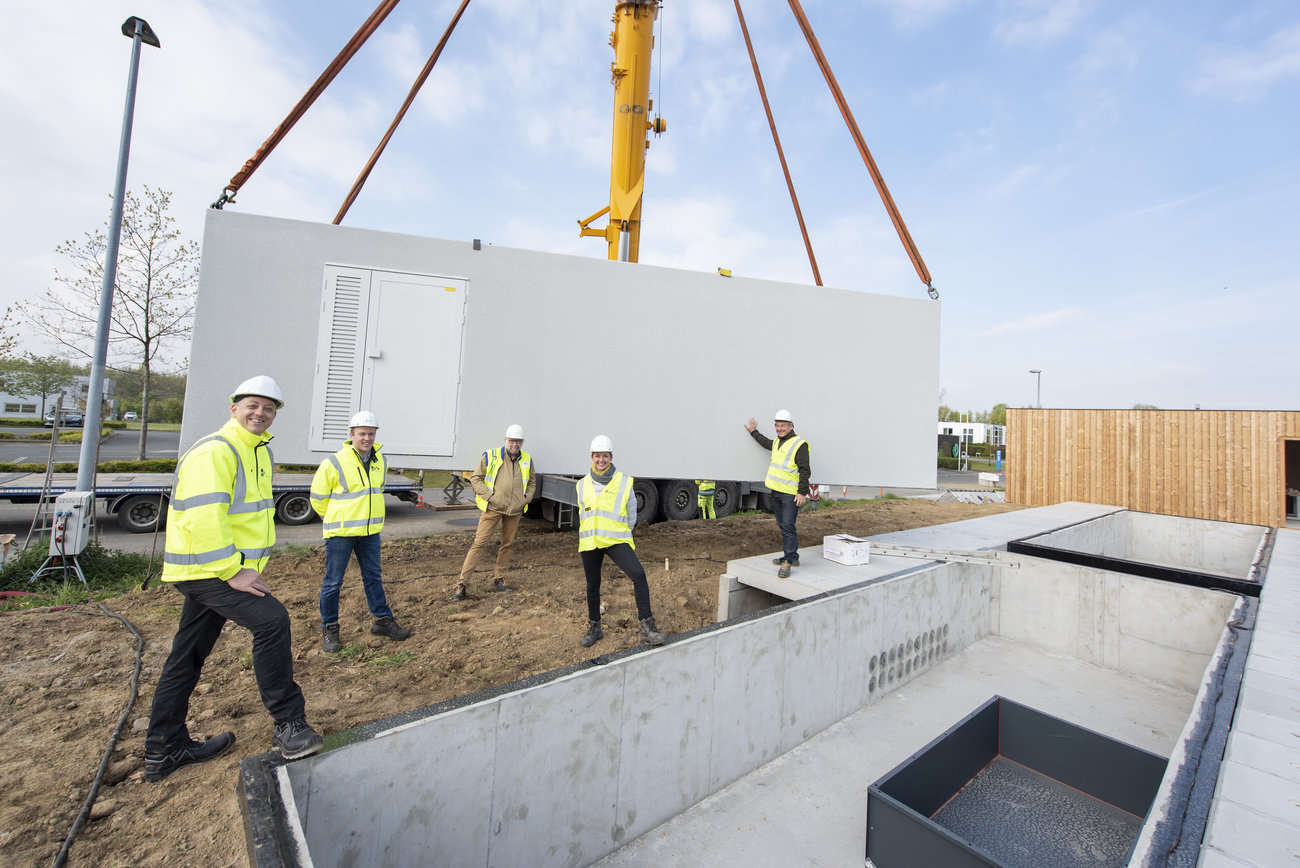
Unique energy test bed in Zellik under power
In the spring of 2021, we installed two oversized electricity cabins on the site of Green Energy Park in Zellik. In this unique in Europe 'energy test bed', companies will be able to test their new energy technologies in a 'live' energy community.
A 2.3-km trench in the port of Antwerp for more green power in Beveren (Kallo)
In the port of Antwerp, we dug a two-metre wide trench over a total distance of 2.3 kilometres. It contains cables for various companies that want to significantly increase their green electricity production from biogas.
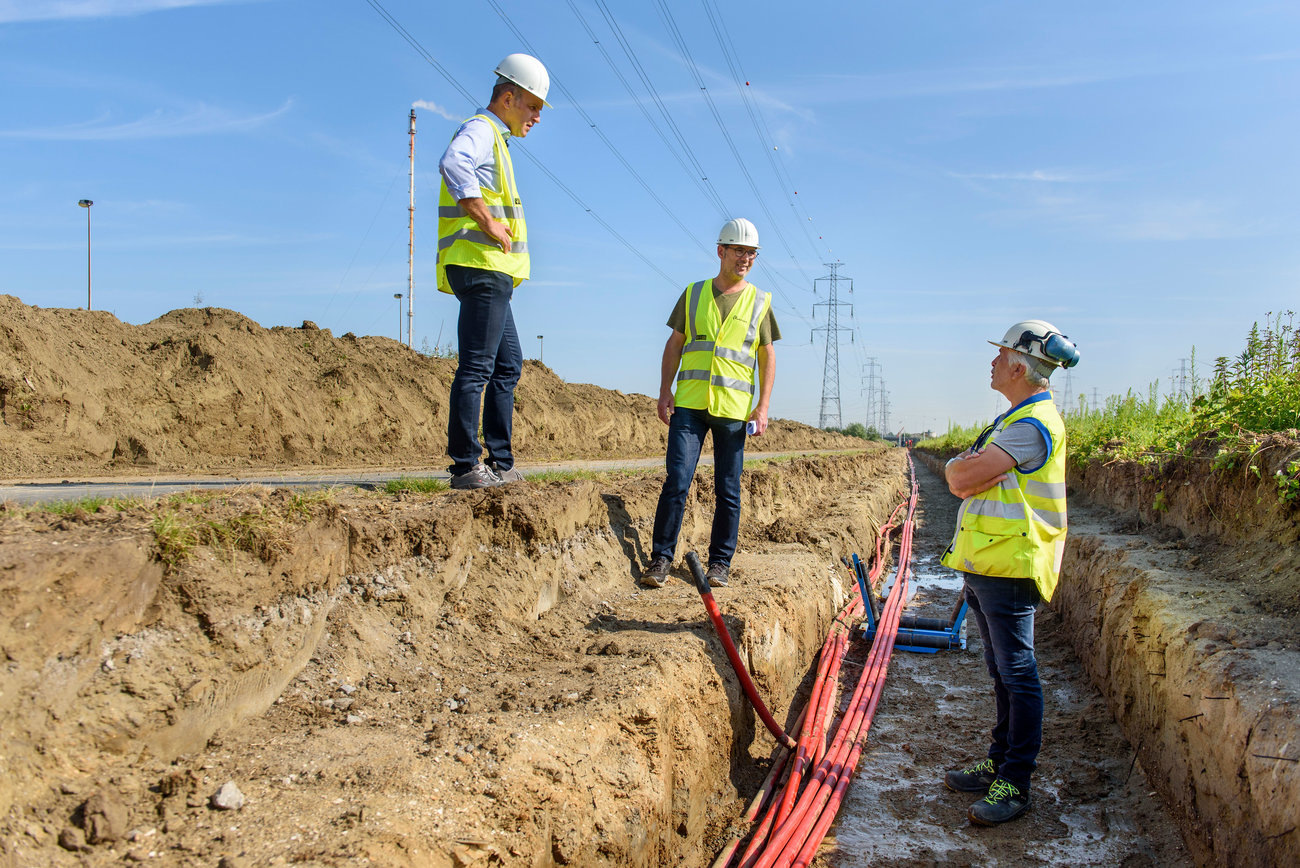
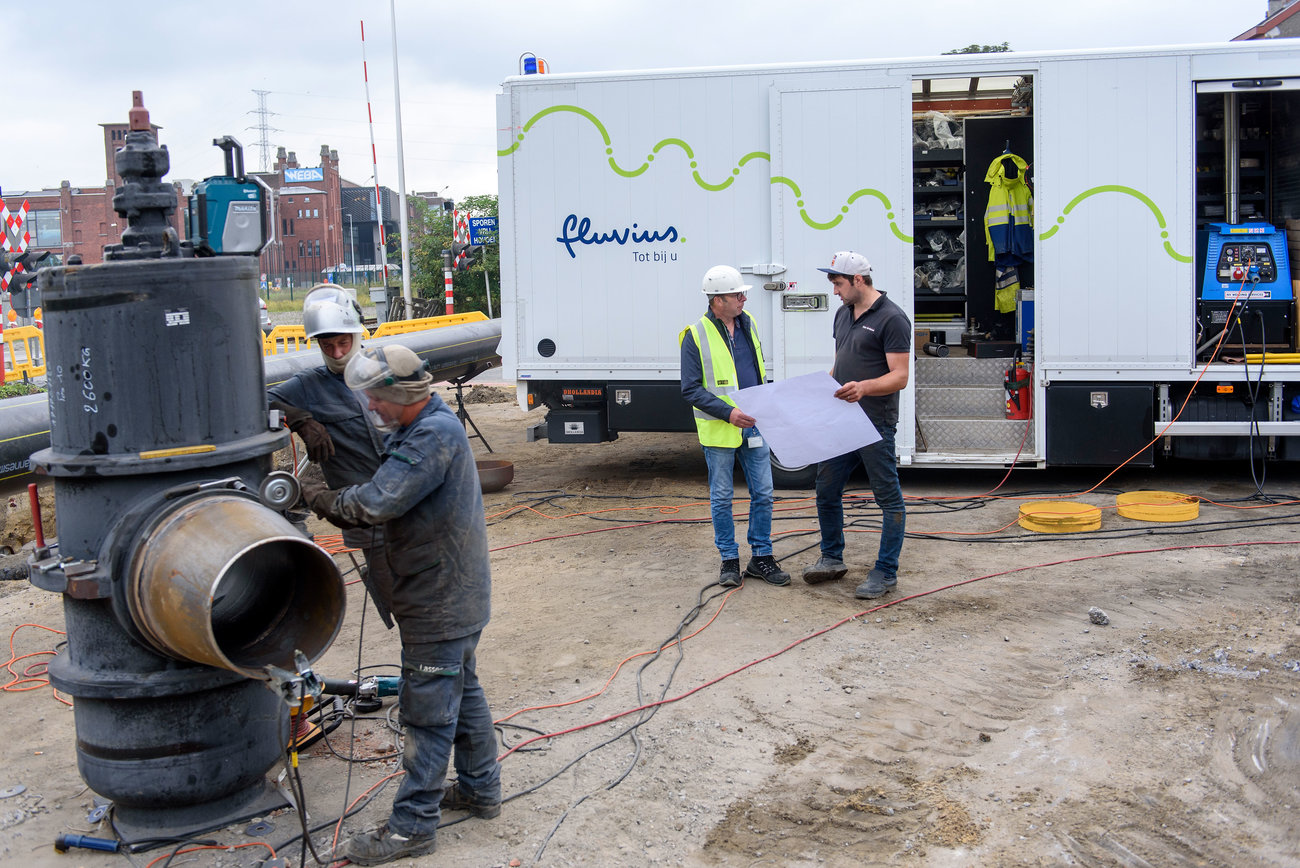
Important natural gas supply for Ghent city centre renewed
On the Afrikalaan in Ghent, we carried out impressive work on the natural gas network. We replaced five obsolete gas valves and laid new pipelines, among other things, to guarantee the switching function of two important supply pipelines for Ghent city centre.
Belgian first: greener natural gas with biomethane from waste water
Green gas from the water treatment process now also flows through the natural gas network. For the new upgrading unit in Antwerp South that converts raw biogas into biomethane, we ensured a high-quality and safe gas injection.
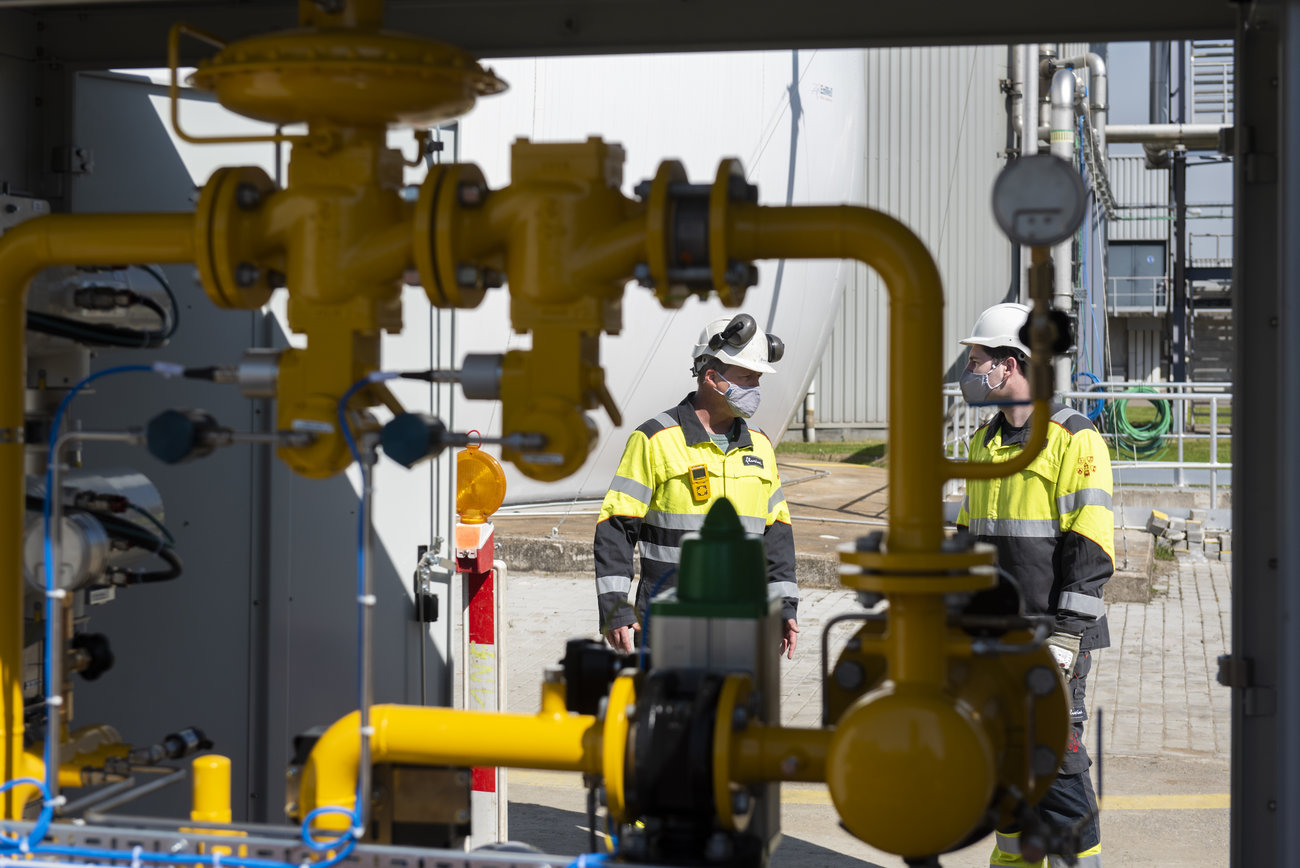
Heating networks: on the rise
More and more local authorities are using heat as an energy source. At the end of 2021, we had more than 67.2 km of heat networks in 15 Flemish municipalities with 1,756 connected customers. The number of new heating projects is rising, too. Since heat forms part of our multi-utility vision, we take care of the installation and operation of heating grids.
Fluvius’ role: heating grids in the public domain
We want to make every effort to realise the maximum available potential of heat networks in Flanders. We propose that the construction and management of heat networks be regulated in the Flemish public domain under the supervision of a Flemish regulator. In this case, the network would be owned by the municipality (or a group of municipalities). This approach resolves a number of risks and social issues.
Wherever it makes sense, we want to leave as much as possible to the free market when it comes to generating and supplying heat and laying heat networks on private land.
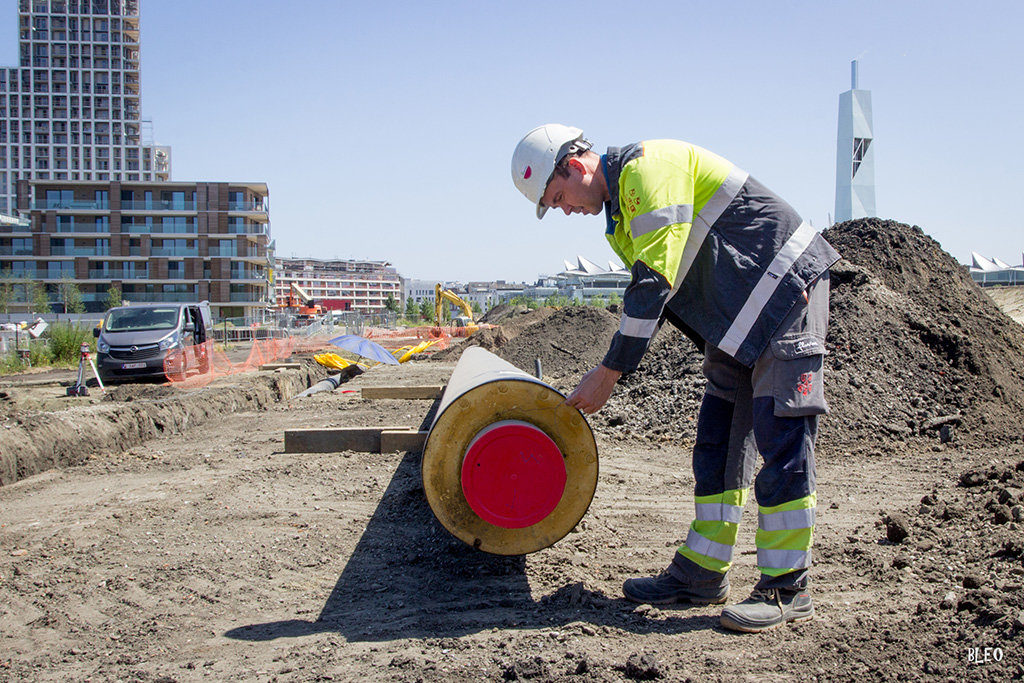
Our most notable heating projects in 2021
- Antwerp North heat network: the port
At the end of 2021, we signed a cooperation agreement with Indaver, the Port of Antwerp, Boortmalt, Woonhaven, and the City of Antwerp on the construction of a heat network in the north of Antwerp. It will be supplied with industrial residual heat from the port. On behalf of the City of Antwerp, Fluvius is connecting a residential heat network to this industrial network, which will supply heat to 3,200 houses and flats belonging to the social housing company Woonhaven - Hoboken heat network: Boombekelaan industrial zone
Last year, we carried out major works in Hoboken to lay a transport heat network from the Boombekelaan industrial zone to the Nieuw Zuid residential site and the Blue Gate sustainable business site. - Suikerpark heat network in Veurne: Pepsico crisps manufacturer
In the spring of 2021, we concluded an agreement for the purchase of residual heat from our heat network in the new Suikerpark subdivision. The heat producer is the oven of crisps manufacturer Pepsico. - Turnhout heat network: deep geothermal energy
At the end of 2021, in collaboration with the City of Turnhout and developer Vooruitzicht, we signed a cooperation agreement for the construction of a heat network in the new subdivision 'Heizijdse Velden'. The heat is extracted from deep geothermal energy, the natural heat deeper under the earth's surface.
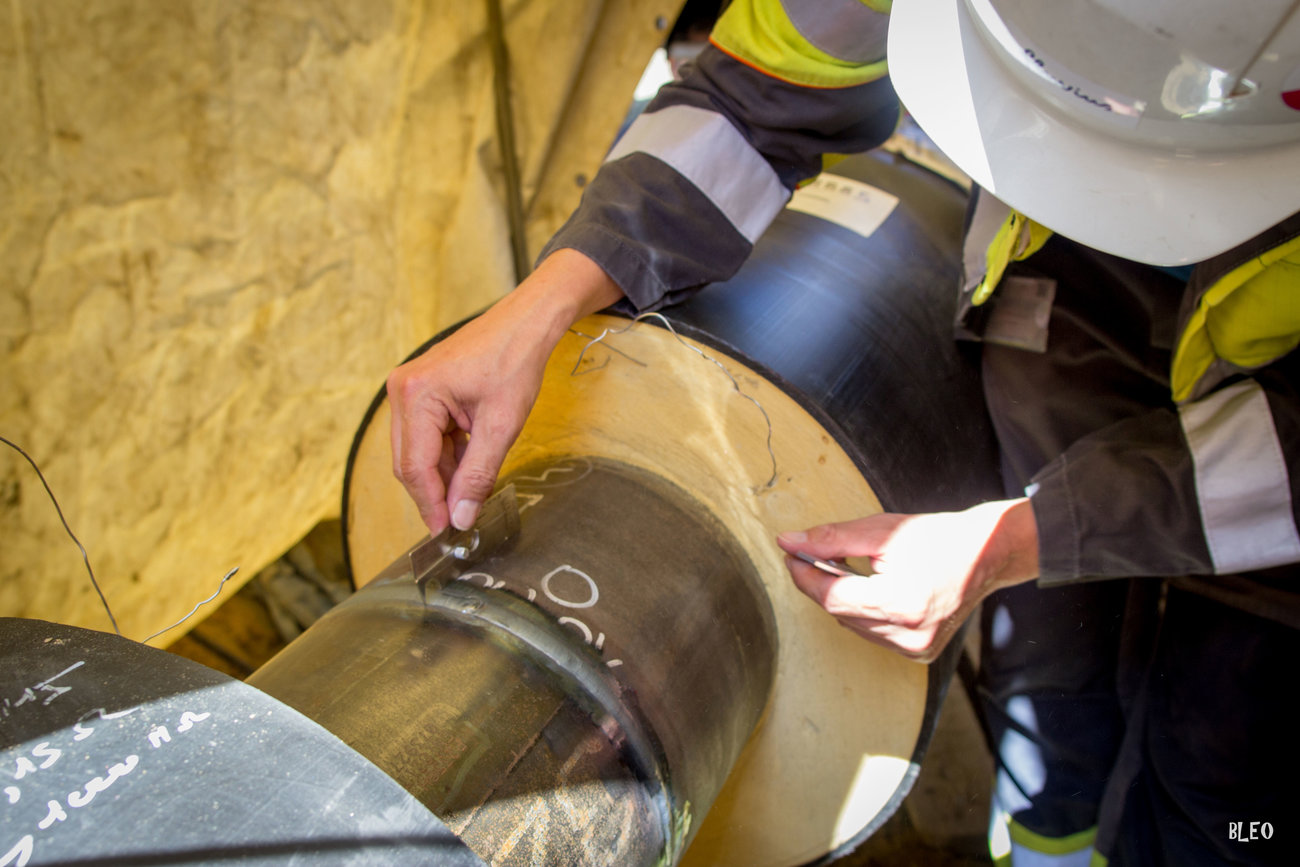
Data networks of the future: fibre optics
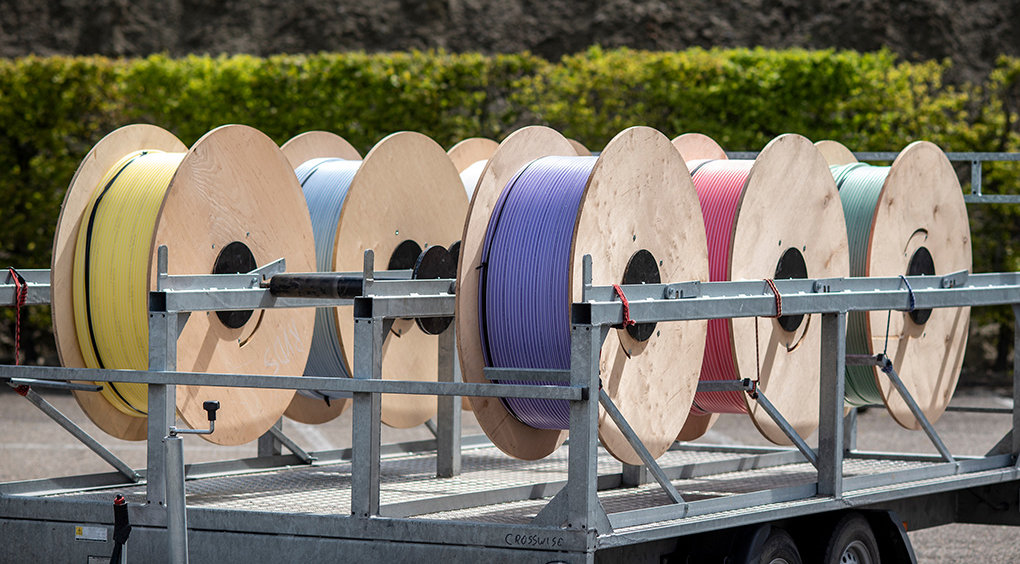
We are using fibre optic (fibreglass) to provide rapid and affordable internet access to everyone in Flanders. This is part of our multi-utility goal of managing all public network infrastructures and data networks and creating maximum synergy. Fibre optic creates a huge benefit for our cable distribution operations. We already manage the cable TV network for 103 cities and municipalities, with a total length of 27,830 km and over 1.1 million connections.
Making the choice for fibre optic led to five successful fibre-to-the-home pilot projects in 2019. Bringing fibre optic cabling right into the customer’s home massively increases the data carrying capacity. In 2021, we successfully completed the pilot projects.
To build on this success, we sought to identify one or more operational telecom partners. After a public tendering process and negotiations with major players in the Flemish telecom market, we selected Telenet on 26 June 2020. On 28 October 2021, Fluvius and Telenet signed a non-binding agreement to jointly develop the data network of the future. The criteria are open, ultra-performance, accessible to businesses and families in both urban and rural areas, and built at the lowest possible cost to society.
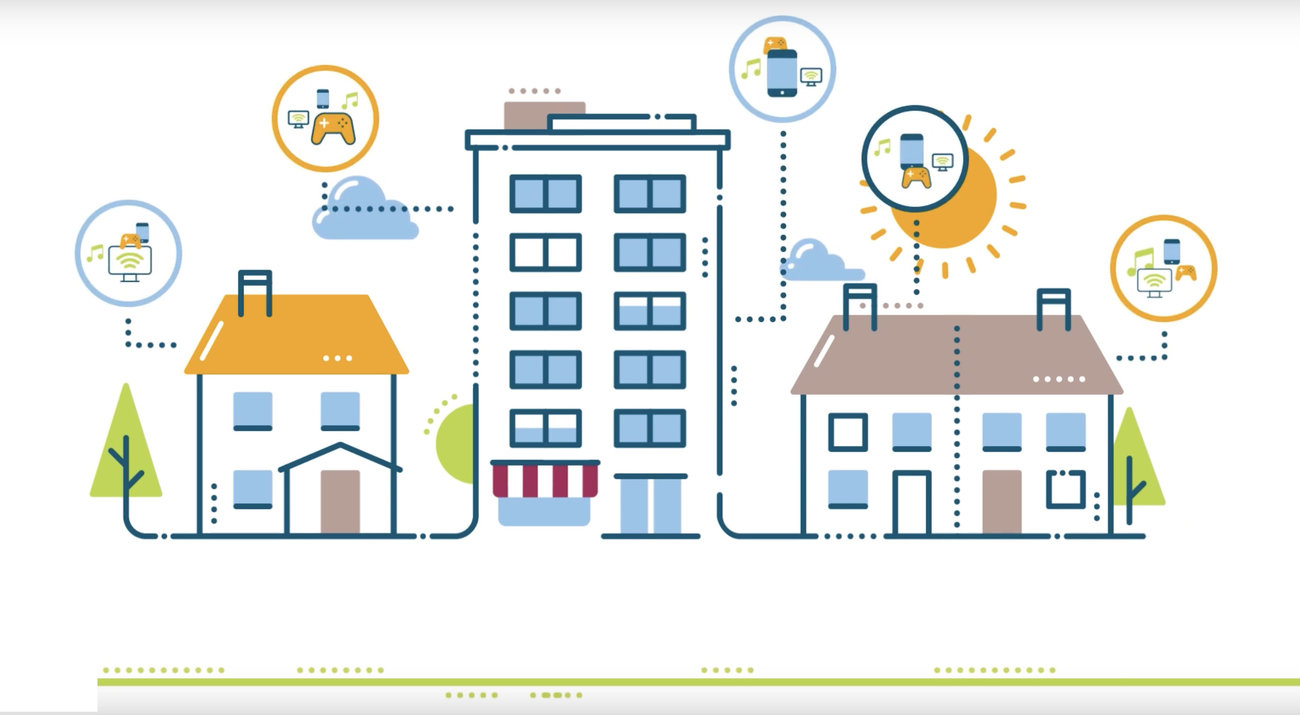
Water management: Flanders’ biggest sewer system operator
We want to play a strategic role in water management, both for sewerage and for ground and drinking water. Joining forces with municipalities enables sewage to be processed even better.
Dommel River contract
The droughts and floods of recent years make it clear that there is work to be done in the field of climate-proof water management.
So, in 2021, we signed the Dommel River Contract together with 17 partners. This is how we are committing ourselves to collaborating in 46 actions concerning flooding, drought, water quality, and water collection in an area around the river Dommel and spread across the municipalities of Pelt, Peer, Hechtel-Eksel, and Lommel.
The actions are not limited to the watercourses, but extend to the entire Dommel river basin. Appropriate interventions in canals and fields should make our water system more resistant to climate change.
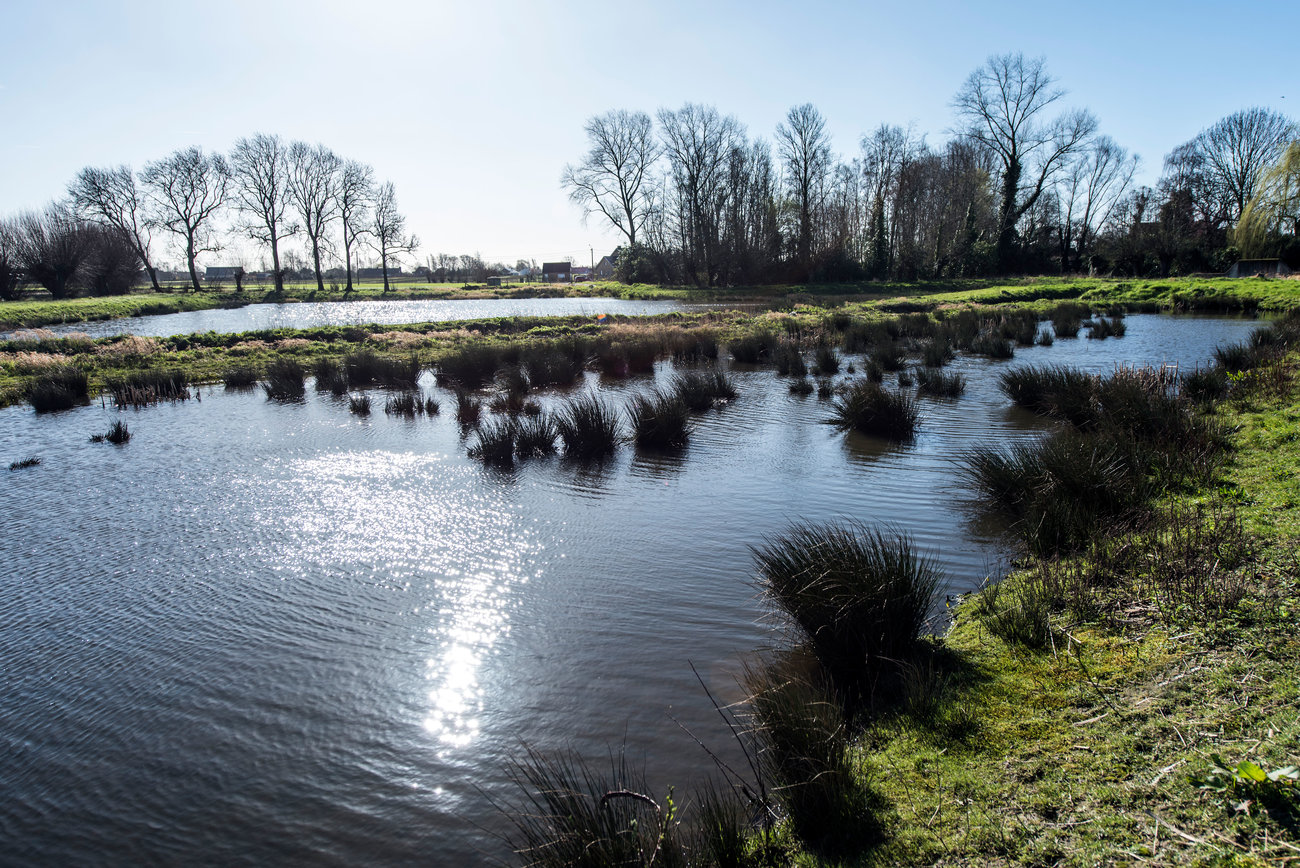
Blue Deal
In Flanders, we alternate between water shortages and flooding. It is both too wet and too dry. Our nature is highly fragmented, which also puts pressure on ecosystems.
The Flemish Government launched the Blue Deal in 2020 to tackle these problems in a structured way. This is the collective name for a large number of projects and initiatives that focus on, among other things, softening, re-wetting, circular water use, cooling, and greening.
